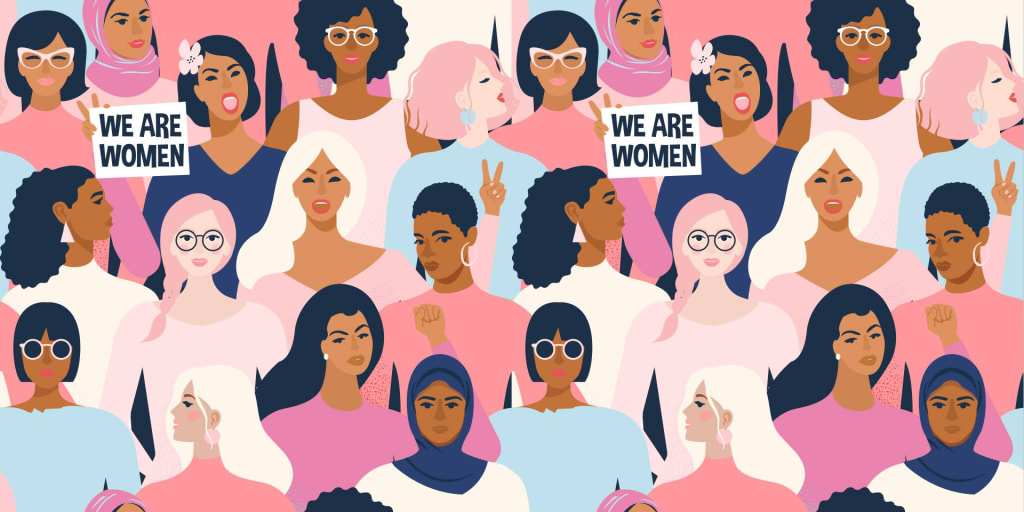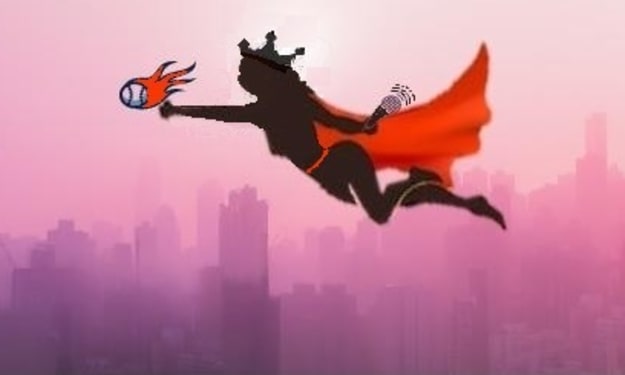The Future of Girls: An Interview with UN Ambassador Chowdhury
“If women are marginalized in any human endeavor, I can tell you that endeavor will not succeed.”

WE are women, but we ALL should be for women. At least, according to the opinion of heralded Global Dignitary and United Nations Ambassador, Anwarul Chowdhury.
“If women are marginalized in any human endeavor, I can tell you that endeavor will not succeed.”
As Ambassador Anwarul K. Chowdhury spoke those words to me recently during a private interview at the United Nations in New York City, I felt a sense of relief. Having served as President of the UN Security Council, Senior Special Advisor to the UN General Assembly President, UN Under-Secretary General, President of UNICEF Board, recipient of UNESCO Gandhi Gold Medal for Culture of Peace, and as one of the world’s most respected advocates for gender equality, he proved resolute and forthright about his convictions.
My relief arose from the realization that the Ambassador will indeed always be there as a champion for the 50% of humanity that needs male leaders to step up and help us females ford the stream. “By marginalizing women we are using only 50% of the capacity the world has to improve itself,” he laments. “It is high time that we should act to proactively, consciously and resolutely assert the inherent equality that women have. Recognize that, give them a place and benefit from that.”
So, what is the Future of Girls? Brighter, thanks to Ambassador Chowdhury. Let me explain. I had served on a panel with Ambassador Chowdhury at a UN conference in 2013, and heard him give a presentation in California last year.
As a charismatic lightning rod for the gender equality movement, he has proved to be an encouraging statesman to me and anyone else that wants to contribute their energy to promoting equality. His effectiveness as a motivator comes from the ability to entrance an audience with a speaking style equal parts melodic and earnest.
The Ambassador has served at the UN since 1972, and after 45 years he continues to be optimistic about the future for girls. In fact, young people are one of his main target audiences. In fits and starts, he has seen progress. He shines a light on one positive example from the unlikely country of Rwanda, in West Africa. The Ambassador speaks about the 1990’s Rwandan genocide, when as many as 1 million Tutsi were slaughtered by the Hutu majority. He states that while the war raged, he saw how “women have managed their society, social institutions, how women have put food on the table, how women have sent their children to school while the country is engaged in a civil war. While men are off fighting in the bushes women ran their society.”
He then relates that the Rwandan men, upon returning from war, were not happy about how well women had things running. The men “get a little bit antagonistic, a little bit let down and want to subvert that role of women.” However, the women of Rwanda stood tall. “We have seen the largest number of women in the parliaments of the world is in Rwanda, an African country that has one of the worst massacres in the history of humankind. Sixty-four percent of Rwandan parliament is women. “
For all of us, young girls and young women especially, the Ambassador speaks passionately about our need to be curious and open to new ideas and ways of getting things done.
“I believe this is what humanity should learn; they should develop this eagerness of learning from each other.”
He ardently speaks of, “The concept which is very essential for humanity to believe, and this is more true for young people like you, that every one of us should feel and behave like a global citizen. We are part of that community. We should understand and have sensitivity to the happenings outside of our national boundaries.”
His point becomes clear as he explains global causes and effects that do not recognize borders. “We have what we call problems without borders. Problems without passports. Think about drug trafficking. Think about health challenges like Ebola and all kinds of diseases. Think about child trafficking. Think about conflict. Think about money laundering. All of these things have no boundaries. And now, climate change, which has an impact on the world as a whole.”
“The countries which have contributed the least to climate change are the worst sufferers, like my country Bangladesh. One third of my country will go down to the sea if the water level rises one foot more.” He goes on to discuss how the action of each individual impacts every other individual, no matter where they live on the planet. “If you are going out of your room, and you decide to switch off the light, that simple action will have helped another village in Africa to have a light switch turned on. It’s as simple as that.”
Ambassador Chowdhury is emphatic regarding the role he feels women should play as equal partners to men. He is disappointed that of the nine Secretary Generals the UN has selected, none have been women. He has personally had a profound impact promoting gender equality through the UN, especially during his terms as President of the Security Council. It was during his term in March of 2000 that he “thought this was a big opportunity to bring in that dimension of peace and security work that is done by the United Nations.”
He continued by saying he “had some experience in seeing women at the grass roots level, how they are contributing in a tremendous way to peace and security in the world, and also in their communities.” Furthermore, he was personally instrumental in having a resolution adopted to encourage countries “to prepare a National Action Plan to promote women’s role in peace and security and women’s equality at all decision making levels at the country level.” He believes that within two years well over one hundred member nations will have a plan in place.
I ask Ambassador Chowdhury if he feels the UN today is now more or is it less effective as an organization than when he arrived in 1972, bringing Bangladesh’s application for membership. He states there are times when the UN acts like the giant bureaucracy that it is. However, he states that when Bangladesh was formed, and he arrived at the UN, it was a poor, devastated country. “But every aspect of Bangladesh has been contributed to by the efforts of the United Nations. The health services, the roads and highways, the education system, the telecommunications system, the parliamentary democratic system—everything has been supported—all aspects of Bangladesh’s life that you see today has been directed by the United Nations in a positive way. “
He speaks with firsthand knowledge about the benefits the UN has provided, especially to those countries least able to help themselves. He says the media could do a better job of highlighting some of the UN’s successes, instead of focusing on its perceived shortcomings. In fact, he states that “eighty percent of the UN’s resources are spent on economic and social development, but we know very little about that. We know only about the issues of failure.”
In spite of what he sees as a me-first trend, whereby countries worry only about their self-interests, the Ambassador sees the UN as “the most universal organization in the world; it has all the countries of the world as members, and I think this is the place where we can come and talk and have dialogue with each other, and not engage in fistfights.”
I ask Ambassador Chowdhury who his role models are. He states that anyone who is well-intentioned, indeed.
“Anyone, big name or small name, it doesn’t matter, a person willing to make his or her own contribution is my role model.”
For the benefit of all of us 17 year olds, I ask him what advice he would give his former 17 year old self. He pulls four books, one at a time, out of his coat pocket, and discusses the importance of each one as he goes. He begins by saying, “I believe that I would always carry with me, and I would recommend this to me as a 17 year old as you are, but all 17 year olds, and younger people maybe, these four booklets with me all the time. Because I believe that these are the most inspirational booklets of the world. One is the Charter of the United Nations, which is humanity’s Magna Carta. I think this is the most important booklet humanity has to benefit from.”
The last three are, The Universal Declaration of Human Rights, the Convention on the Elimination of all Forms of Discrimination Against Women, which the Ambassador states is “necessary for all of us to read and internalize.” And finally, the United Nations Declaration and Program of Action on a Culture of Peace. The last booklet reflects the Ambassador’s efforts as Chairman of the drafting committee “which negotiated this document for nine months to adopt this by consensus. This is the only document of the United Nations which has been adopted by consensus.”
He finishes by saying, “If I was 17 years old now, I would want to be recognized as a global citizen, promoting the Culture of Peace.” A commonly used definition of the Culture of Peace is:
A culture of peace is an integral approach to preventing violence and violent conflicts,and an alternative to the culture of war and violence based on education for peace, thepromotion of sustainable economic and social development, respect for human rights,equality between women and men, democratic participation, tolerance, the free flowof information and disarmament.
Ambassador Chowdhury’s legacy is secure, tied by many to his successful championing of Resolution 1325. He states, “The Security Council of the United Nations passed the Resolution 1325, titled Women, Peace and Security, and that Resolution was initiated by me when I was the President of the Security Council in March, 2000.” That effort by the Ambassador to promote gender equality contributed to the small, slow rolling snowball effect he has witnessed in his 45 years at the UN. Without him, there would be no snowball at all.
In 1972, when he arrived in the United States, women earned 57% of what men earned. That number has now risen to 82%. There is still a long way to go, and in fact some predict it will be the 23rd century before we have gender equality. No one really knows, of course, but one thing is certain. The future of girls is brighter because of the efforts of people like Ambassador Chowdhury.
About the Creator
Ally Woodard
• author / Mama Lupita’s Happy Orphanage
• EPIC Award Winner
Ambassador and Coordinator for Art Miles Mural Project, Shoes of Hope, Esperanza Learning foundation
• speaker / TED / United Nations Peace Day
we are all connected / be kind💗






Comments
There are no comments for this story
Be the first to respond and start the conversation.